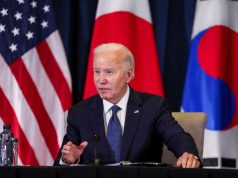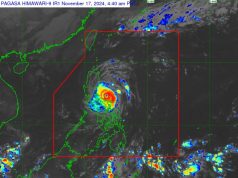MANILA – The Supreme Court opened oral arguments by the petitioners Tuesday challenging the legality of the Philippine National Police (PNP) anti-drug operation nationwide, tagged informally as Operation Plan Tokhang.
Present were various groups who had filed the consolidated petition: Nuns and relatives of those who died, many at the hands of police and lawmen on mission to implement the war on drugs that had, resulted in, thousands of deaths.
Many of the deaths had been attributed by the law enforcement establishment to instances of suspects or persons of interest putting up armed resistance that had placed the lives of lawmen in jeopardy, prompting them to kill in self-defense.
Much of the oral arguments delved on the Constitutionality of PNP COMMAND MEMORANDUM CIRCULAR NO. 16, or popularly dubbed OPLAN TOKHANG, and Department of the Interior and Local Government MEMORANDUM CIRCULAR NO. 112, or the so-called DROP BOX METHOD of submitting anonymous tips to the police.
According to the petitioners, the use of the tell-tale terms NEGATION and NEUTRALIZE in the OPLAN TOKHANG order was unambiguous: “Kill” the suspected drug offenders.
Even PNP Chief Ronald “Bato” dela Rosa has been known to use those same terms, they said, adding that this situation smacks of a violation of basic rights of the suspects or would-be suspects, including breaches of privacy when elements of the police are deemed empowered to force their way into houses without legal search or seizure orders.
Atty. Chel Diokno, counsel of the petitioners, Oplan Tokhang is not the right response to the scourge of drugs, “A stronger justice system is.”
Besides, Diokno said, there is room for amending of tweaking the operational aspects of the anti-drug war, so that atrocities can be properly documented and investigated.
PNP statistics indicate that at least 3,800 fatalities have been recorded in so-called legitimate police operations, which the petitioners view as a systematic form of crime against humanity.
For his part, Solicitor General Jose Calida pointed out that, technically speaking, the situation is moot and academic because the implementation of the war on drugs is already out of the hands of the PNP, having been transferred to the Philippine Drug Enforcement Agency.









